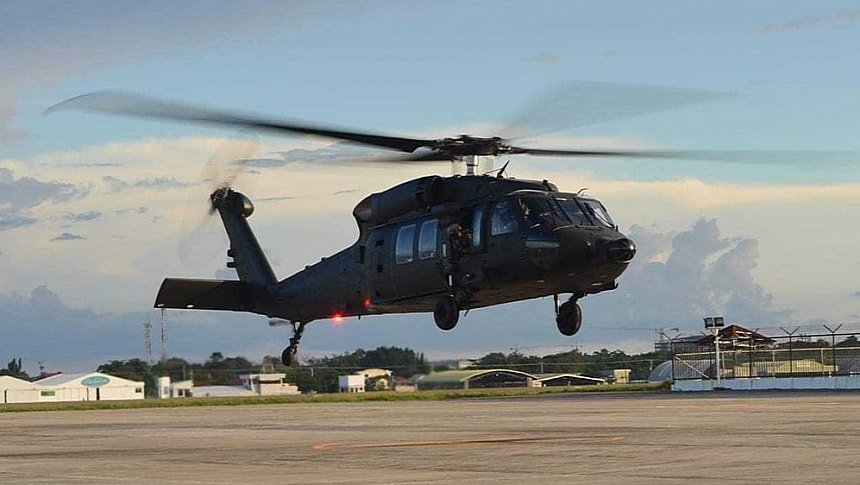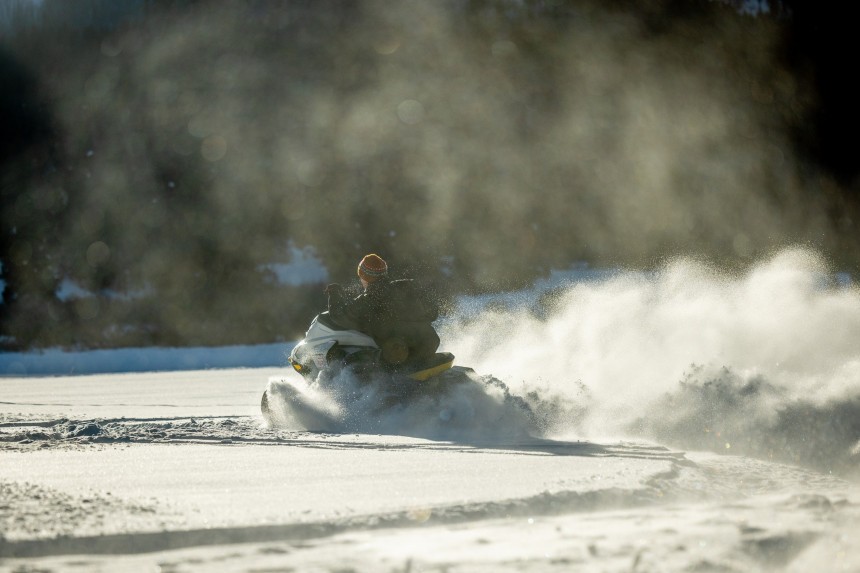What could easily be described as the strangest, most unlikely crash of all time is now the basis for a $9.5 lawsuit against the U.S. Government, with the victim determined to see the Military held responsible for it.
On the evening of March 12, 2019, Massachusetts real estate attorney and passionate snowmobile rider Jeff Smith hopped onto his snowmobile to get back home after a visit to his mother in Worthington. He used a well-known snowmobile trail as he always did, zapping through a section of the trail that doubled as a private airfield at highway speed.
At the same highway speed (65 mph/105 kph), Smith crashed into a Black Hawk helicopter. The military aircraft had landed in the airfield some hours prior from Fort Drum in New York and had been left unattended and unmarked while the crew had gone down to the parking lot to grab something to eat. It was already growing dark by the time Smith made his way to that part of the trail, so while he did see something was there, he still couldn't avoid the impact.
Smith crashed his snowmobile into the tail of the Black Hawk and was thrown with his machine into the air and then off it. He suffered broken ribs, a punctured lung, and internal bleeding and spent the next month in hospital. To this day, he can't move his right arm and has breathing issues that make him reliant on an oxygen machine.
His attorney has filed a $9.5 million lawsuit against the U.S. Government, arguing that the Military is guilty of negligence for leaving the aircraft unattended and unmarked, especially since the crew knew they'd landed on a trail that was frequently used by snowmobilers. According to the 11-page complaint seen by one media outlet, the lawsuit also argues the Military was responsible for alerting riders of the aircraft's presence, which it failed to do.
Smith is seeking damages that will help him cover his mounting hospital bills and the loss of revenue in the years since the accident. He may also require further surgery, which he can't afford.
The Military, on the other hand, has repeatedly tried to have the case dismissed. An internal investigation revealed that the crew had complied with all rules and regulations and determined that they were not obligated by law to mark the parked aircraft. Even if they had used chem lights to make it visible, it would have probably made little difference.
Attorneys for the defendants also argued that the crew didn't know they'd land on a snowmobile trail and noted that Smith had blood alcohol levels just under the legal limit, having drunk two beers before the ride. He'd also taken prescription pills, which Smith said were painkillers for older knee injuries, presumably had a reputation for drinking and driving, and a penchant for speeding.
A federal judge in Springfield is expected to rule in the following months. Before this lawsuit, Smith filed an action against the owners of the airfield for allowing both snowmobiles and the Black Hawk on the airfield and settled out of court for an undisclosed amount.
At the same highway speed (65 mph/105 kph), Smith crashed into a Black Hawk helicopter. The military aircraft had landed in the airfield some hours prior from Fort Drum in New York and had been left unattended and unmarked while the crew had gone down to the parking lot to grab something to eat. It was already growing dark by the time Smith made his way to that part of the trail, so while he did see something was there, he still couldn't avoid the impact.
Smith crashed his snowmobile into the tail of the Black Hawk and was thrown with his machine into the air and then off it. He suffered broken ribs, a punctured lung, and internal bleeding and spent the next month in hospital. To this day, he can't move his right arm and has breathing issues that make him reliant on an oxygen machine.
Smith is seeking damages that will help him cover his mounting hospital bills and the loss of revenue in the years since the accident. He may also require further surgery, which he can't afford.
The Military, on the other hand, has repeatedly tried to have the case dismissed. An internal investigation revealed that the crew had complied with all rules and regulations and determined that they were not obligated by law to mark the parked aircraft. Even if they had used chem lights to make it visible, it would have probably made little difference.
Attorneys for the defendants also argued that the crew didn't know they'd land on a snowmobile trail and noted that Smith had blood alcohol levels just under the legal limit, having drunk two beers before the ride. He'd also taken prescription pills, which Smith said were painkillers for older knee injuries, presumably had a reputation for drinking and driving, and a penchant for speeding.
A federal judge in Springfield is expected to rule in the following months. Before this lawsuit, Smith filed an action against the owners of the airfield for allowing both snowmobiles and the Black Hawk on the airfield and settled out of court for an undisclosed amount.





























































